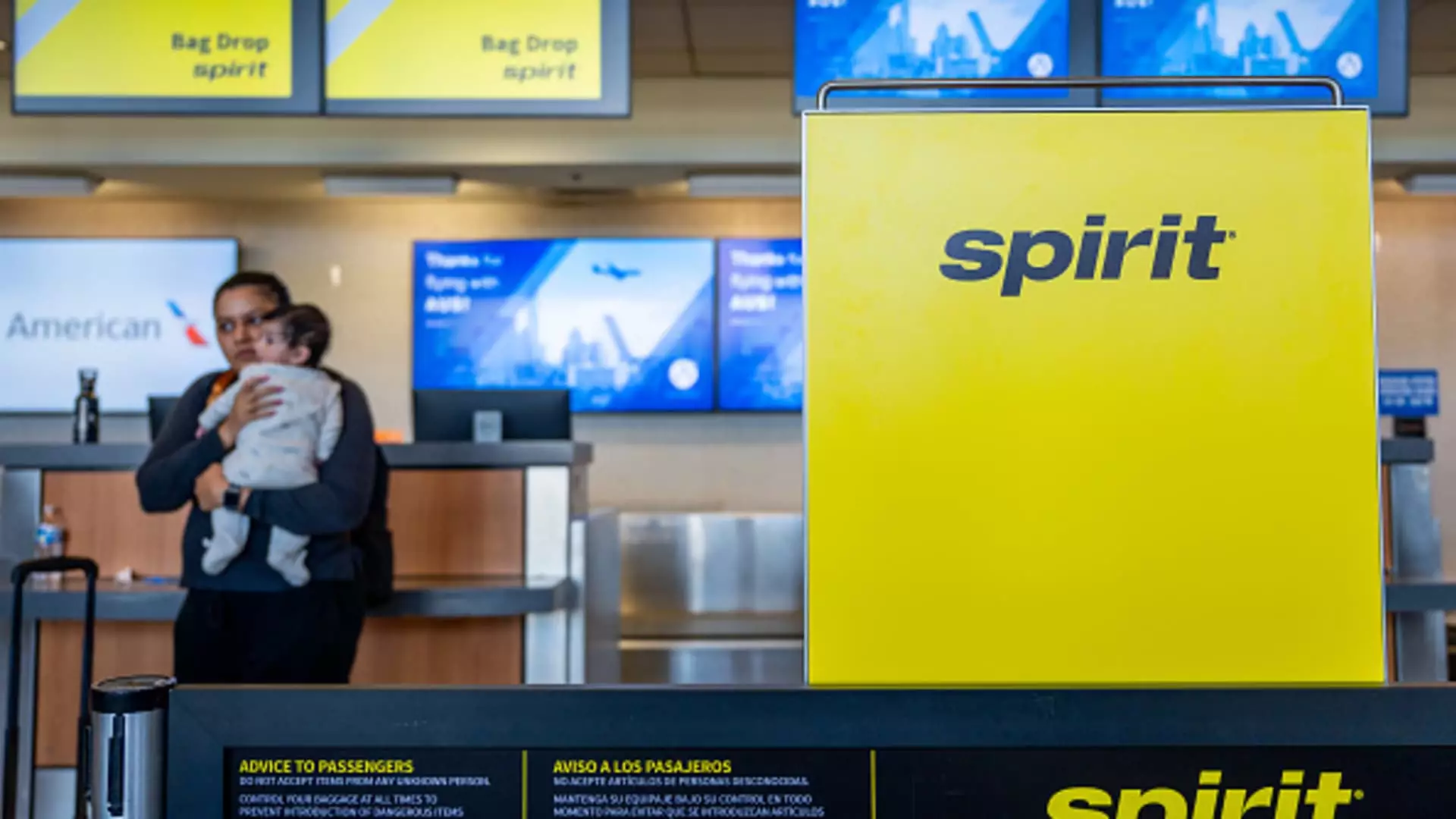In a significant turn of events for the airline industry, Spirit Airlines has filed for Chapter 11 bankruptcy protection, marking a pivotal moment as it becomes the first major U.S. passenger airline to do so since American Airlines back in 2011. However, travelers should not panic; this move is not indicative of the airline shutting down. Instead, it serves to provide Spirit with the necessary breathing room to restructure its operations and safeguard its ability to keep flying while it faces substantial financial challenges.
According to Spirit’s CEO, Ted Christie, travelers are encouraged to continue booking flights without fear as the airline remains operational. His correspondence with customers aims to instill confidence, clarifying that loyalty points and existing flight credits will still be honored. This assurance is vital for maintaining customer trust amid financial instability.
Spirit Airlines has been grappling with a downward financial spiral since 2019, a trend that saw a dramatic exacerbation during the COVID-19 pandemic. Rising operational costs coupled with the grounding of numerous aircraft due to safety recalls have placed immense pressure on the airline. Furthermore, a failed merger with JetBlue Airways, blocked by a federal judge, left Spirit in a particularly vulnerable position. As the end of the year approaches, the airline faces a daunting deadline regarding its $1.1 billion in debt payments, stressing the urgency of its bankruptcy filing.
The Chapter 11 filing is, therefore, more than just a strategic maneuver; it is a life raft that Spirit needs to negotiate better terms with its creditors. The airline recently announced that it has secured a prearranged deal with the majority of its bondholders, allowing for a streamlined bankruptcy plan. The anticipated timeline for emergence from this process is in the first quarter of 2025, contingent on successful restructuring efforts.
Impacts on Travelers
From a consumer perspective, the implications of Spirit’s financial turmoil are manifold. While the airline aims to maintain a trajectory that minimizes disruptions during the holiday season—critical for revenue generation—there remains a palpable uncertainty regarding potential cuts in routes or services. Travel industry experts, like Henry Harteveldt from Atmosphere Research Group, emphasize the need for consumers to remain vigilant in monitoring any schedule changes or potential layoffs of staff that could affect their travel plans.
Travelers should be aware of their rights under U.S. regulations, particularly in the context of flight cancellations. Specifically, passengers are entitled to a cash refund if their flight is canceled and they are not rebooked. However, navigating refund processes could become more complex post-bankruptcy. The Department of Transportation has warned that airlines in bankruptcy might curtail their ability to issue refunds to conserve cash flow, a reality that could complicate the experience for customers.
For those keen on traveling with Spirit Airlines during this tumultuous phase, experts recommend several strategies for minimizing risks associated with travel plans. Utilizing credit cards for booking is highly advisable, as they offer better consumer protection compared to debit cards or cash transactions. Should a flight be canceled or significantly altered, the Fair Credit Billing Act may create avenues for recourse that can ease financial losses.
Additionally, travelers anxious about the stability of Spirit Airlines could consider purchasing refundable tickets, albeit at a higher cost, from alternative carriers to ensure greater flexibility. The consideration of travel insurance also emerges as a prudent option; policies may cover pre-paid expenses should the airline’s financial condition lead to abrupt changes in flights.
Looking beyond the immediate implications of its bankruptcy filing, Spirit Airlines represents a broader narrative within the airline industry. The possibility of emerging from Chapter 11 as a leaner and more efficient carrier exists, paving the way for renewed profitability. However, the landscape remains dynamic, with speculation about other airlines potentially acquiring parts of Spirit’s operations due to industry consolidation.
As airlines strategize to adapt in an ever-evolving market, it appears that the turbulence faced by Spirit Airlines will not only reshape its own future but also have ripple effects throughout the larger airline ecosystem. Travelers should remain informed and proactive, continuously assessing their options and exercising diligence as they navigate this complex landscape of air travel.


Leave a Reply